1. Employee awards can be classified based on recipient, recommender, and criteria.
2. They include individual, team, manager-recommended, and peer-to-peer awards. Criteria-based awards cover performance, behavior, and tenure.
3. It is crucial to align awards with business goals and culture to enhance engagement and motivation.
4. Essential considerations should include the frequency, value, and decision-making process of awards.
5. There is no one-size-fits-all solution, and a tailored approach works best.
Most organizations today understand the importance of appropriately rewarding and recognizing employees. Deciding on the types of awards and their criteria is critical to designing the employee rewards and recognition program.
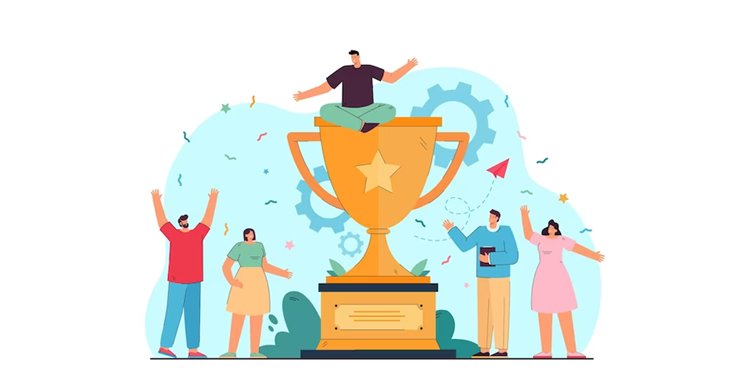
There are many ways that awards can be classified:
A. Who is being given the award?
1. Individual
2. Team
B. Who is giving/recommending the award?
1. Peers/ Colleagues
2. Manager/ Supervisor
C. What is the reason or criteria for giving the award?
1. Performance or Achievements
2. Behaviors or Values
3. Tenure
Organizations need to be aware of the different types of awards.
They should be able to choose the ones that are most relevant to their business goals and culture.
It would help them to maximize employee engagement and motivation.
Here are the most common types of rewards prevalent in modern organizations:
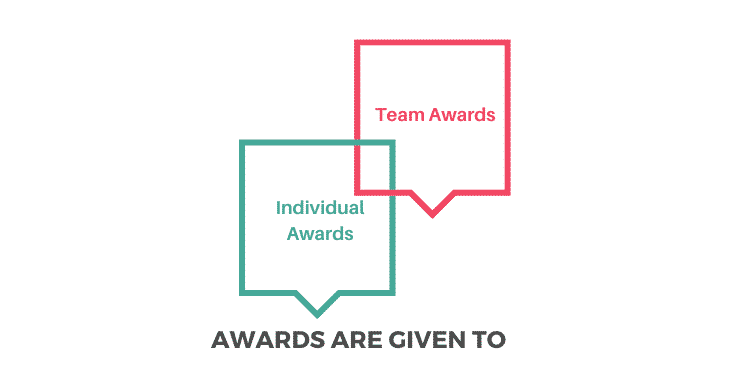

Despite the focus of most organizations on teamwork and collaboration, individual awards still play an important role in every rewards and recognition program
Individual awards are here to stay, whether given to appreciate employees for accomplishing a challenging task, displaying exemplary behavior, or taking the initiative.

With increasing focus on teamwork and collaboration, it is not surprising that team awards are increasingly growing in importance in rewards and recognition programs.
Team awards are critical in building a united and dedicated workforce committed to fulfilling common business objectives.
There are many variants of team awards based on the type of team being rewarded or recognized:
Whether cross-functional or intra-functional, organizations should reward project teams for completing critical and complex projects on time, within budget, or overachieving the project’s goals.
Enabling or Support Functions play critical roles within an organization, most often silently behind the scenes.
These functions include HR, Administration and Facilities, Finance and Accounting, Internal IT, etc.
They enable the business to run smoothly and take up challenging tasks related to changes in business strategy, policies, and processes.
It is common for large business organizations to operate through branch offices, outlets, or independent units.
Such organizations must recognize the performance and the efforts of teams working in these branch offices or business units.
This is even more critical if these branches or units are geographically dispersed – the teams working there need to feel valued and an integral part of the organization.

This method of rewarding or recognizing employees is the most common and traditionally preferred by organizations.
Managers, supervisors, or team leads typically nominate or recommend their team members for different awards.
The manager might also decide whether a particular employee should receive the award or recommend it to the next-level manager with the details required for assessment.

This type of recognition has gained popularity over the past several years as it is considered highly transparent, democratic, and effective.
This method of recognition empowers co-workers to reward and recognize the efforts, achievements, and even the specific behavior of employees.
Though a co-worker recommends it, the management might make the final decision.
However, direct peer-to-peer recognition is becoming increasingly prevalent without the intervention of any manager, which makes the process incredibly effective.
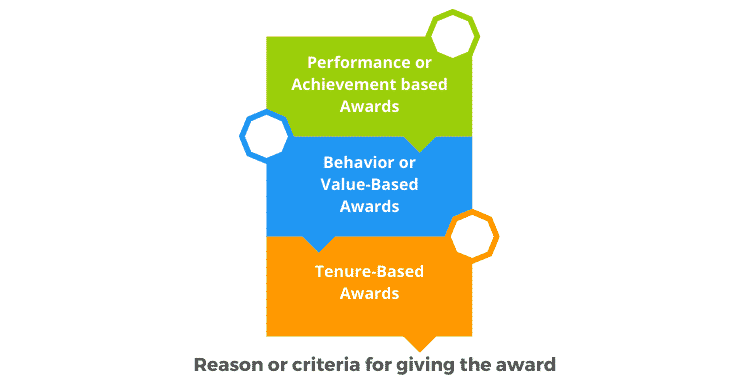
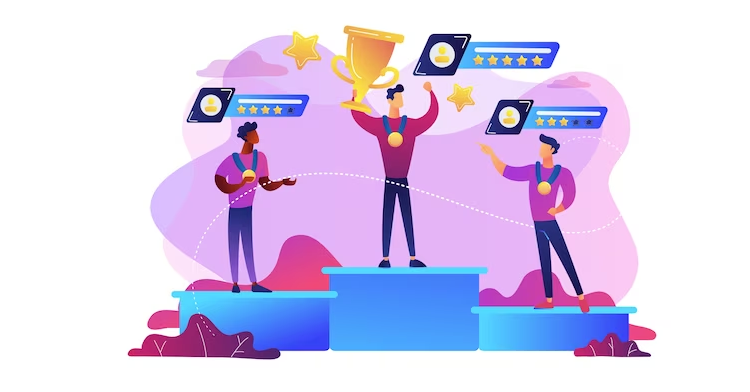
As the name suggests, performance, achievement, or impact-based awards aim to reward and recognize the results of the work or efforts of an employee.
Hence, these rewards are completely work-centric and are decided based on the contribution of the employee towards the business.
These awards are also known as business impact awards, as they directly affect the organization’s growth and profitability.
We can further categorize these into sub-types based on the business metrics impacted:
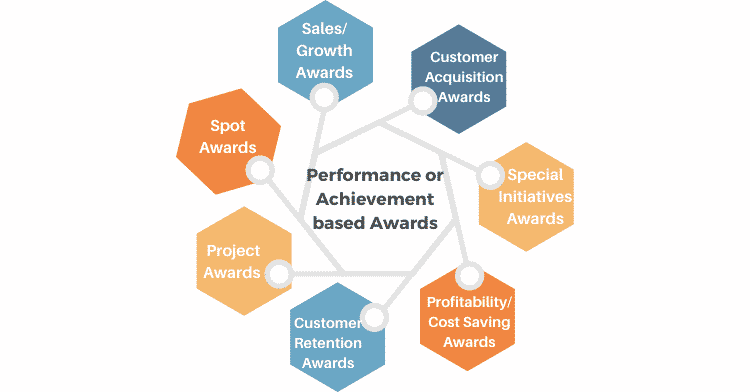

Spot Award is a catch-all term for recognizing exemplary performance, such as a good client presentation or a task completed beforehand.
The key element of Spot Awards is that it is done immediately following the achievement by the employee.
Typically, though the achievement might have a business impact, it might not be measurable in terms of a business metric.
For impact on specific business metrics, there could be other award types.
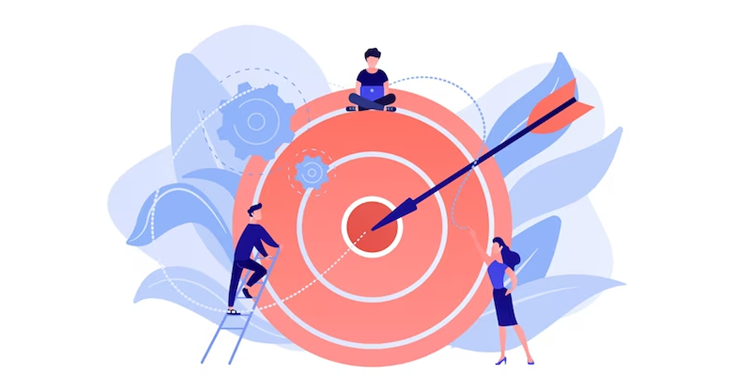
Organizations typically award these awards for exceeding sales/ revenue targets for a month, quarter, or the entire year.
Organizations might reward employees for bringing in new customers based on the number of customers or specific vital customers.
Organizations typically give these awards to those employees who have played a key role in retaining key customers or winning back customers under challenging circumstances.
Hence, recognizing the efforts to retain a customer is as important as recognizing efforts to bring in new customers.
Organizations should recognize employees who have helped save costs and improve margins through process improvement or cost engineering.
Completing a challenging project in time and with the desired (or more than the desired) results should be recognized.
Employees could be recognized for participating in or undertaking special initiatives that might not be directly related to their area of work or key performance areas.
These could include employee engagement activities, representing the organization in an external event such as sports, culture, community service, or thought leadership.

Recognizing employees for demonstrating specific behaviors or values is an effective way to keep them engaged and motivated besides promoting these desirable traits among the other members of the workforce.
Unlike performance-based awards, these are not for specific achievements but for consistently displaying certain behavioral traits over time through multiple achievements, small or significant.
These awards go a long way in building a positive work environment and aligning employees to the organization’s value system.
A few such awards are as follows:
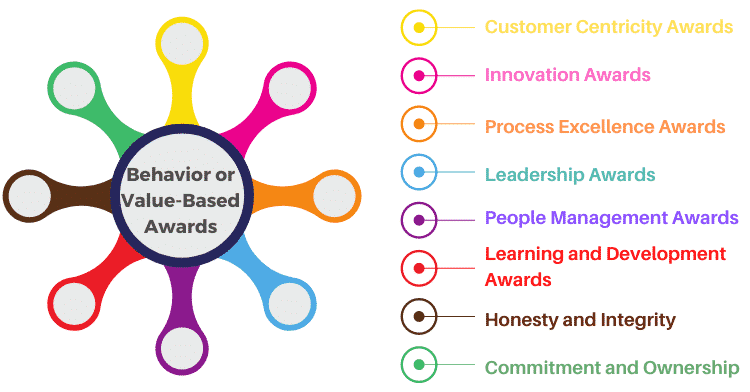
It is a highly desirable trait sought by all organizations in their employees.
Employees who are always focused on ensuring the happiness and satisfaction of the customers at all costs deserve such awards.
Their efforts make a huge difference in enhancing the organization’s topline and growth.
Innovative and creative employees simplify complex tasks and processes, save costs, develop or improve products and services, come up with newer ways to reach out to customers interestingly and excitingly, etc.
Hence, rewarding such employees is critical for business growth and competitive advantage.
This category might seem to overlap with the Innovation Awards.
However, these awards are focused on process improvements; especially repetitive processes leading to higher efficiency, lower error rate, higher productivity, and eventually lower costs.
Successful Lean and Six Sigma projects may be under the ambit of these awards.
Every organization needs a talent pool of potential leaders for succession planning.
Leadership awards are designed to recognize upcoming leadership talent in the organization and give them higher visibility within the organization.
The efficient management of people is essential for building a highly motivated and satisfied workforce.
So, organizations need to reward and recognize the efforts of their line managers and supervisors who manage their teams effectively and coach and mentor their team members to perform better.
Continuous learning and development are essential for ensuring employees’ personal and professional growth and driving business growth.
Learning and Development Awards are instituted to reward and recognize those employees who contribute to training programs, sharing their knowledge and training others to supplement the effort of the full-time trainers in the organization.

Most organizations put a lot of emphasis on retaining their best employees.
Hence, it has become extremely important for organizations to appreciate and reward their most loyal employees.
They also need to recognize the efforts of the new hires as it sets the tone for their continued performance and longevity in the organization
Tenure-based awards consist mainly of the following types:
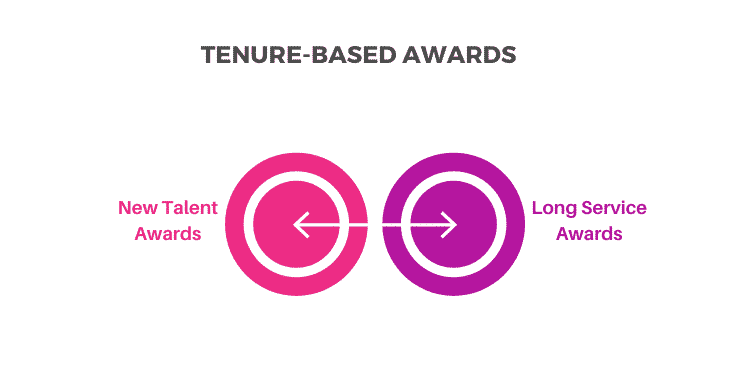
Most organizations hire a large pool of fresh talent, but only a few of these new hires show the potential to become successful professionals.
New talent awards are a great way of motivating them and paving the way for them to take up bigger responsibilities in the future.
Rewarding employees when they have attained specific tenure milestones is a way of thanking them for their contribution and making them feel valued by the organization.
Awarding employees on the completion of three, five, ten, fifteen years, and so on with the organization provides organizations with a means to express their gratitude for the loyalty and contribution of these employees.

Organizations must consider some essential facts when deciding on the most appropriate award types for employee rewards and recognition programs.
The following are a few pointers:
Most experts think organizations should reward and recognize their employees frequently.
Therefore, organizations should decide on their reward schedules based on the size of their workforce, their budgets, the profile of the employees, and most importantly, the business outcomes desired.
They can thus choose to reward them instantly or even monthly, quarterly, or annually based on the above factors.

Organizations must consider the most appropriate method for rewarding employees in addition to the frequency of rewards.
They can choose from a wide range of options in this context including intrinsic and extrinsic awards, monetary and non-monetary awards, and tangible and non-tangible rewards.
Another critical aspect that organizations need to consider is how the awards are decided.
They need to decide whether to follow a more top-down approach, a peer-based approach, or use a reward and recognition panel or committee.
Hence, the transparency of the decision-making process impacts the credibility and fairness of these awards.
There is no ‘one-size-fit-all’ solution to deciding on the most suitable types of awards for an organization. It is the ‘horses-for-courses’ approach that works best – a combination of different award types to fit different situations within the organization.

Lead author: Sagar Chaudhuri, the Co-Founder and CEO of HiFives. He is an HR Tech Evangelist with over 25 years of corporate and entrepreneurship experience. In the past, Sagar has worked in leadership roles with companies such as Genpact, Infosys, and ICICI Bank. He has an engineering degree from IIT Kharagpur and an MBA from IIM Lucknow. Connect on LinkedIn
To stay updated on the latest HiFives blogs, follow us on Twitter (@MyHiFives)